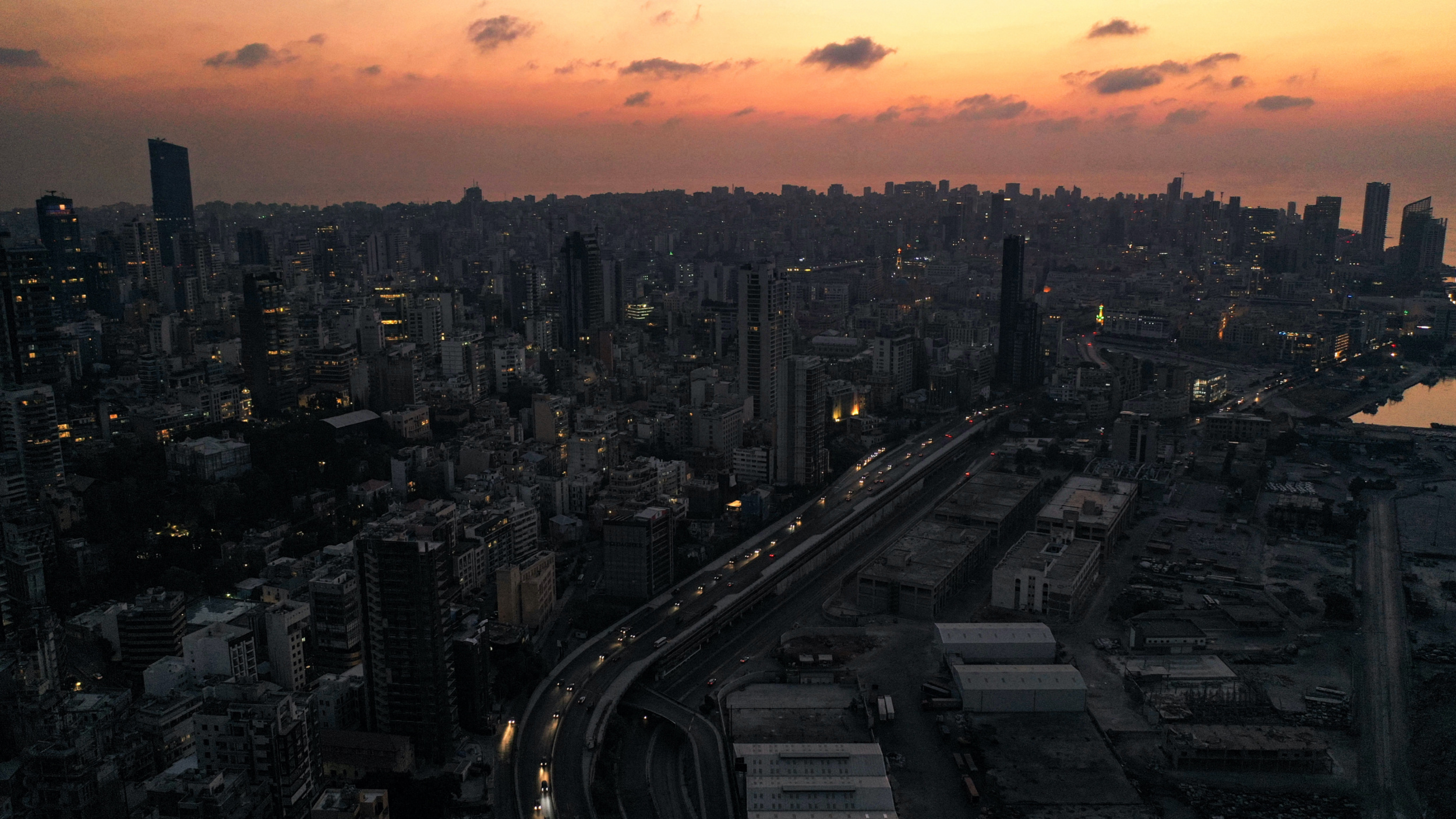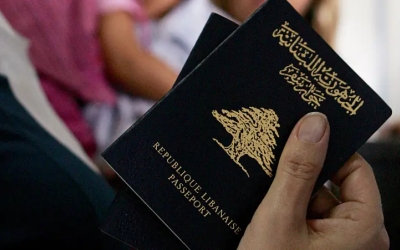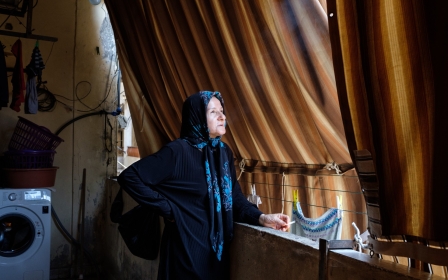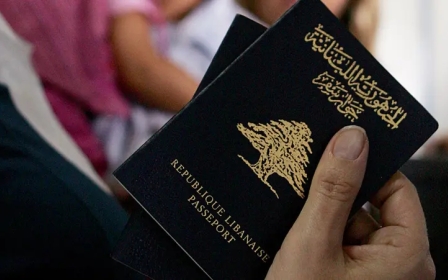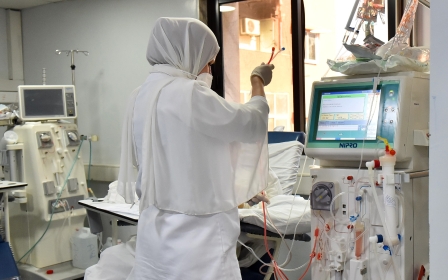Lebanon: New drive to light up Beirut's power-starved streets
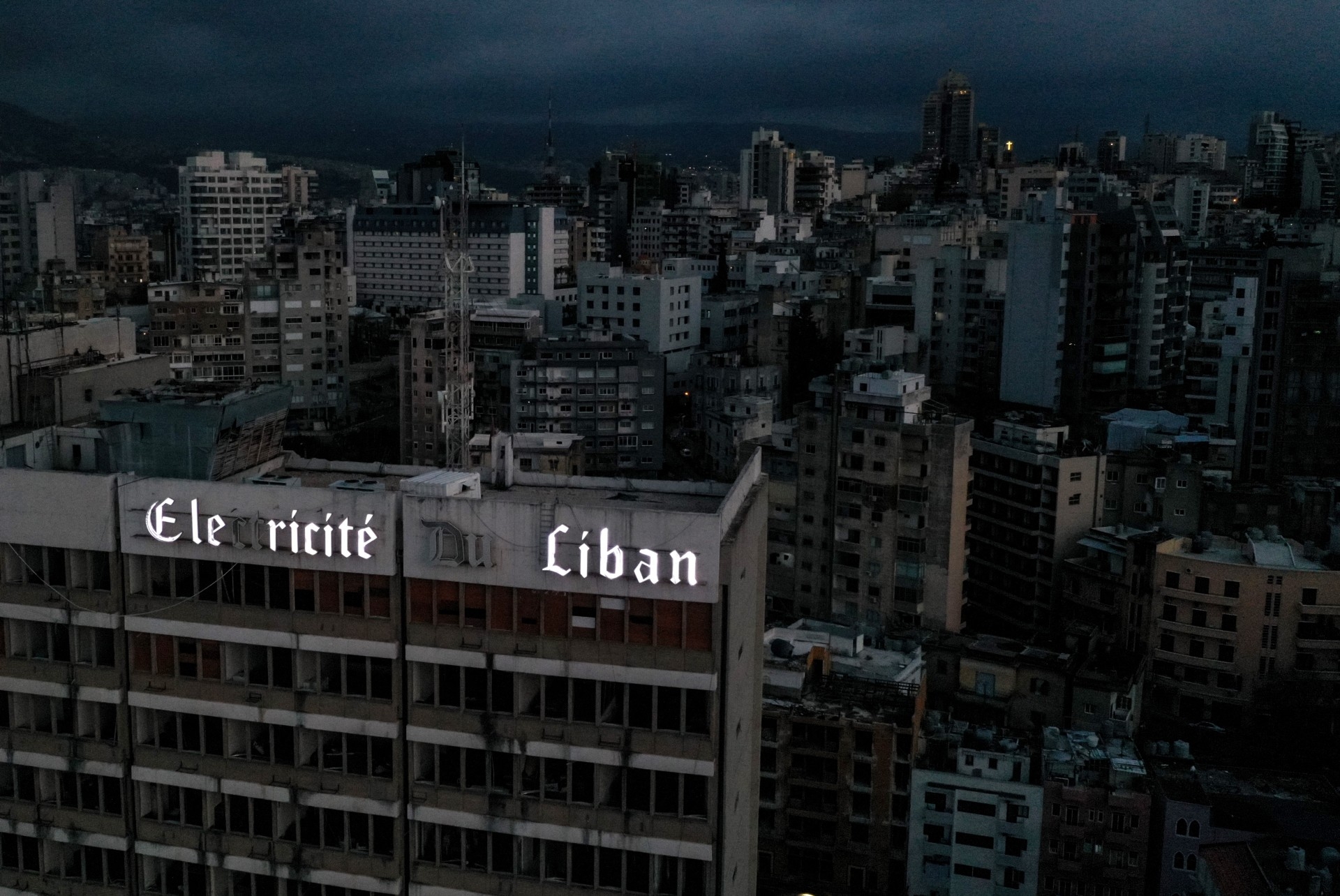
Anyone who has flown over Beirut at night in the past two years to land in the Lebanese capital has been met by wide stretches of darkness interspersed with a few spots of light.
Although Lebanon has suffered power outages for decades, the economic crisis has heightened energy instability and has turned the formerly vibrant Beirut into a ghost city.
'Light is life. If there is light in the streets, people can stay outside longer. Shops and restaurants can stay open longer'
- Samar Hawa, Rebirth Beirut
Not only has the financial meltdown that erupted in October 2019 generated a multidimensional crisis targeting all sectors of the country, it has also left millions of people across the country suffering in the dark.
Street and traffic lights have stopped working, while people at home have had to rely on expensive private diesel generators, as the state-run Electricite du Liban (EDL) can provide power to households for no more than a few hours a day, if at all.
In the wake of the Beirut port blast on 4 August 2020, which killed more than 200 people and caused widespread destruction in surrounding areas, several civic groups and NGOs have been forced to fill gaps left by the government to mitigate the effects of consecutive crises at individual and community levels.
New MEE newsletter: Jerusalem Dispatch
Sign up to get the latest insights and analysis on Israel-Palestine, alongside Turkey Unpacked and other MEE newsletters
Among them is Rebirth Beirut. The Lebanese NGO had helped the most vulnerable people affected by the blast by supplying plastic sheeting for the shattered windows, food and medical support, and organising social and cultural initiatives.
Then it decided to light up the streets of Beirut.
City of life
Founded by Gabriel Fernaine in September 2020 as an immediate response to the aftermath of the Beirut blast, the organisation renovated an empty building in Gemmayzeh, one of the neighbourhoods most damaged by the explosion, and turned it into a cultural centre.
As explained by Samar Hawa, the organisation's project and development advisor, Rebirth Beirut's mission is to revive the capital and bring hope back to its people through a series of initiatives, including lighting up the streets, rehabilitating traffic lights and repairing potholes.
"Light is life. If there is light in the streets, people can stay outside longer. Shops and restaurants can stay open longer," she told Middle East eye.
"We had amazing feedback from the community. Some restaurant owners told us their revenues increased after the relighting of the public lights. There is more pedestrian traffic, and people feel safer walking the streets at night."
To switch on the public street lights of Beirut, Hawa said Rebirth Beirut relies on private diesel generators and provides electrical power cable installation by hiring contractors. In return, private citizens who supply electricity to street light poles through their diesel generators receive a discount on their bills.
To bring power back to traffic lights, Rebirth Beirut has installed solar panels either on top of them or on the rooftops of buildings close to intersections.
As of today, the NGO has lit up 22 streets across the city, and 12 are scheduled to be turned on by the end of August. Meanwhile, 13 sets of traffic lights have been brought back to life.
For funding, Rebirth Beirut counts on private institutions and individuals. It also organises art exhibitions to use part of the profit to start new projects.
Hawa said living in darkness has dispirited people, and the project has given them a sense of safety and has worked as an economic booster.
"The historical image of Beirut as a nightlife hotspot is no longer there when there is darkness. But when light is back, you can remember the true image of Beirut as a city of life," she said.
Two years of darkness
Waleed, a technical consultant with a glass-walled office on one of Gemmayze's streets that have been lit by the organisation, said that he has noticed more movement on the street.
"This is a good initiative. I see more people strolling than before when the street was too dark to walk around," he said.
Fernaine told MEE that the initiative was approved by Beirut's governor, Marwan Abboud, who had to issue permits to start the project.
'Amid this situation, we decided to light up the city ourselves. We cannot wait for the government to do it. We would wait for too long'
- Gabriel Fernaine, Rebirth Beirut founder
Asked whether designated authorities should be the ones to provide electricity to the city, he said that the municipality cannot provide power due to the lack of electricity across the country, the devaluation of the local currency and financial issues.
"In this situation, we decided to light up the city ourselves. We cannot wait for the government to do it. We would wait for too long," Fernaine said.
"We are also doing the maintenance on street lights. We will not wait for anyone because we have been living in darkness for more than two years."
Mona Harb, professor of urban studies and politics at the American University of Beirut and co-founder of Beirut Urban Lab, told MEE the repercussions of the energy crisis on both people and community have been catastrophic.
"The lack of public electricity and the dark streets make people feel less safe after the sunset," she said.
"Also, it may lead to the risk of injuries because you don't know where to walk, and the lack of functioning street lights negatively impacts social life."
Harb listed a few examples of how the lack of electricity has negatively impacted people's day-to-day existence, saying the lack of power has permeated all aspects of daily life.
Elderly people who live alone without electricity and no elevators are stuck at home because of their problems with mobility.
People cannot store food in the fridge and may risk spoilage that can lead to food poisoning. Some people suffer water shortages because water pumps need electricity.
Meanwhile, on long hot summer days and during winter, people cannot use fans, air-conditioning or heaters. Working from home has also been challenging for those who need access to energy to operate.
Pollution caused by the mass use of generators has also resulted in a surge of people suffering from acute respiratory problems.
Mass anxiety
"There have been studies showing the increase of stress and anxiety among people living in Lebanon because they have to find solutions on these essential services to survive," Harb said.
"They have to worry about the consequences of other crises and struggle to find other energy sources for their families or businesses."
'Stress continues to exist at the collective level, indirectly contributing to the stress on the personal dimension'
- Mona Harb, AUB professor
According to Harb, such stress affects people's mental health.
"Even if they find solutions to these issues, stress continues to exist at the collective level, indirectly contributing to the stress on the personal dimension," she said.
Harb argued that the Beirut municipality fails in providing basic services to people and is completely delegating this indirectly to NGOs and other actors.
"There is a void that has been created because public agencies do not effectively play their role in terms of providing services to their citizens. So, this void is filled by NGOs and by political organisations," she said.
For Harb, Rebirth Beirut is an atypical case. It found a creative way to light up public streets because it saw that the absence of public lights has had detrimental effects on both people and the local economic life of commercial streets.
"I am not sure whether this initiative is going to be sustainable. It needs to find funds," she said.
“Furthermore, such a project is not replicable in all city neighbourhoods. This is a short-term solution for a much more structural problem."
This article is available in French on Middle East Eye French edition.
Middle East Eye delivers independent and unrivalled coverage and analysis of the Middle East, North Africa and beyond. To learn more about republishing this content and the associated fees, please fill out this form. More about MEE can be found here.


